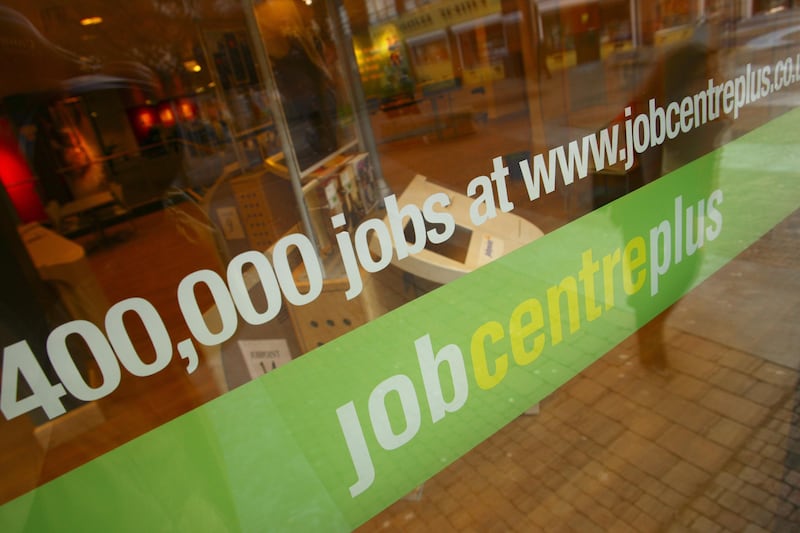EIGHTY-three jobs a day were lost in the north during June with economists warning that unemployment will soar when government employment schemes end later this year.
Statistics body NISRA confirmed that the Department for the Economy was notified of 2,473 proposed redundancies during June, the highest since records began. Another 40 job losses were confirmed during the month, with a further 745 redundancies proposed in the first two weeks of July.
Employers are legally required to notify the Stormont department when cutting more than 20 jobs.
Despite the number of unemployment claimants falling by 1,200 to 63,100 in June, the figure is still more than double the March figure of 29,700.
The claimant count includes jobseeker’s allowance and universal credit claimants. Some analysts have suggested the change to the benefits system could be responsible for a fluctuation in the numbers.
But Ulster Bank chief economist Richard Ramsey has said he expects the claimant count to soon reach 100,000.
HMRC data published this week revealed that 240,200 jobs had been registered under the UK Government’s job retention scheme at the end of June. The number of people seeking self-employed support rose to 76,000.
It accounts for around 37 per cent of the entire labour force.
“The various job and income support schemes have acted as fog over Northern Ireland (and the UK’s) true level of unemployment,” said the economist. “That fog will clear and unemployment will soar.”
Economists in Britain are also forecasting a surge in unemployment. Samuel Tombs, at Pantheon Macroeconomics, said: "The unemployment rate will surge over the coming months as people re-engage with the labour market."
With job listings well down, he said their chances of finding a new job looked slim.
Meanwhile official data published on Thursday confirmed the Northern Ireland economy was in recession before on the onset of the Covid-19 pandemic.
Economic output here fell by a record 2.8 per cent in the first three months of 2020, the third successive quarter of decline.
The Northern Ireland Composite Index (NICEI) revealed output was down 3.2 per cent on the same quarter last year, with private sector output down 4.5 per cent.
The index is the closest to measuring gross domestic output (GDP) for the north.
But Richard Ramsey has said that economic output in Northern Ireland will fall off a cliff in the second quarter, with output falling by a massive 25-30 per cent.








